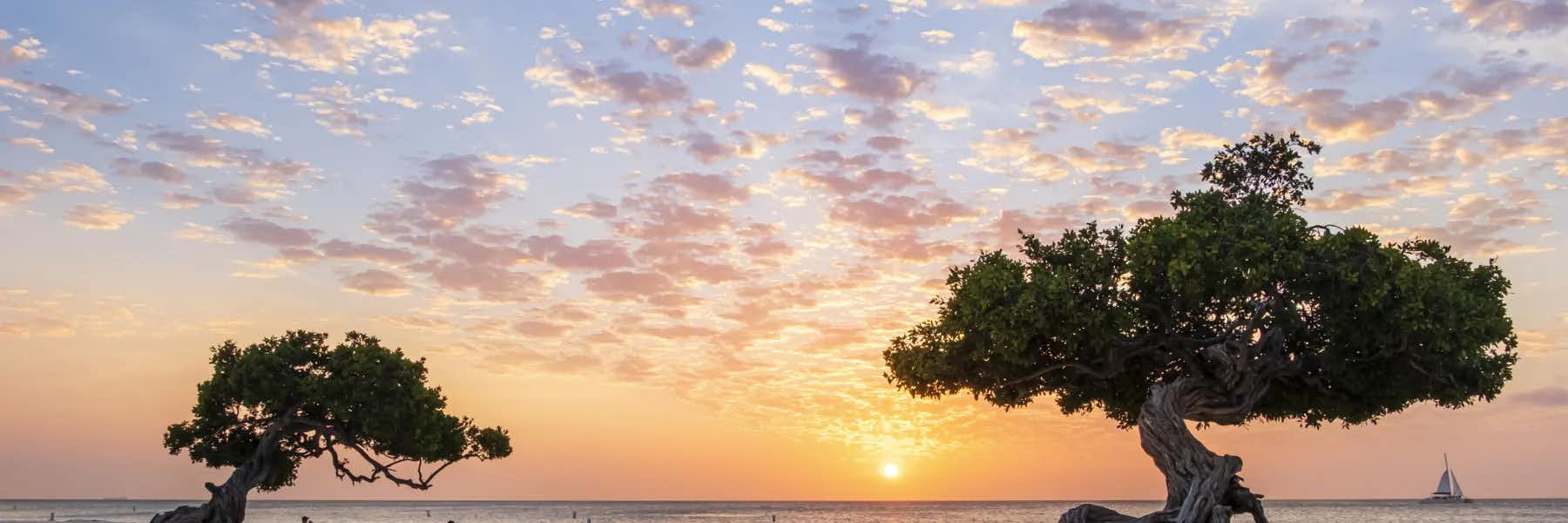History: Discovered and claimed for Spain in 1499, Aruba was acquired by the Dutch in 1636. The island’s economy has been dominated by three main industries. A 19th century gold rush was followed by prosperity brought on by the opening in 1924 of an oil refinery. The last decades of the 20th century saw a boom in the tourism industry.
Aruba seceded from the Netherlands Antilles in 1986 and became a separate, autonomous member of the Kingdom of the Netherlands. Movement toward full independence was halted at Aruba’s request in 1990.
Location: Caribbean, island in the Caribbean Sea, north of Venezuela.
Population: 112,162 (July 2015 est.)
Capital: Oranjestad
Climate: Tropical marine; little seasonal temperature variation.
Language: Papiamento (official) (a creole language that is a mixture of Portuguese, Spanish, Dutch, English, and, to a lesser extent, French, as well as elements of African languages and the language of the Arawak) 69.4%, Spanish 13.7%, English (widely spoken) 7.1%, Dutch (official) 6.1%, Chinese 1.5%, other 1.7%, unspecified 0.4% (2010 est.)
Religion: Roman Catholic 75.3%, Protestant 4.9% (includes Methodist .9%, Adventist .9%, Anglican .4%, other Protestant 2.7%), Jehovah's Witness 1.7%, other 12%, none 5.5%, unspecified 0.5% (2010 est.)
Time Zone: UTC-4 (1 hour ahead of Washington, DC during Standard Time)
*Source: CIA The World Factbook




